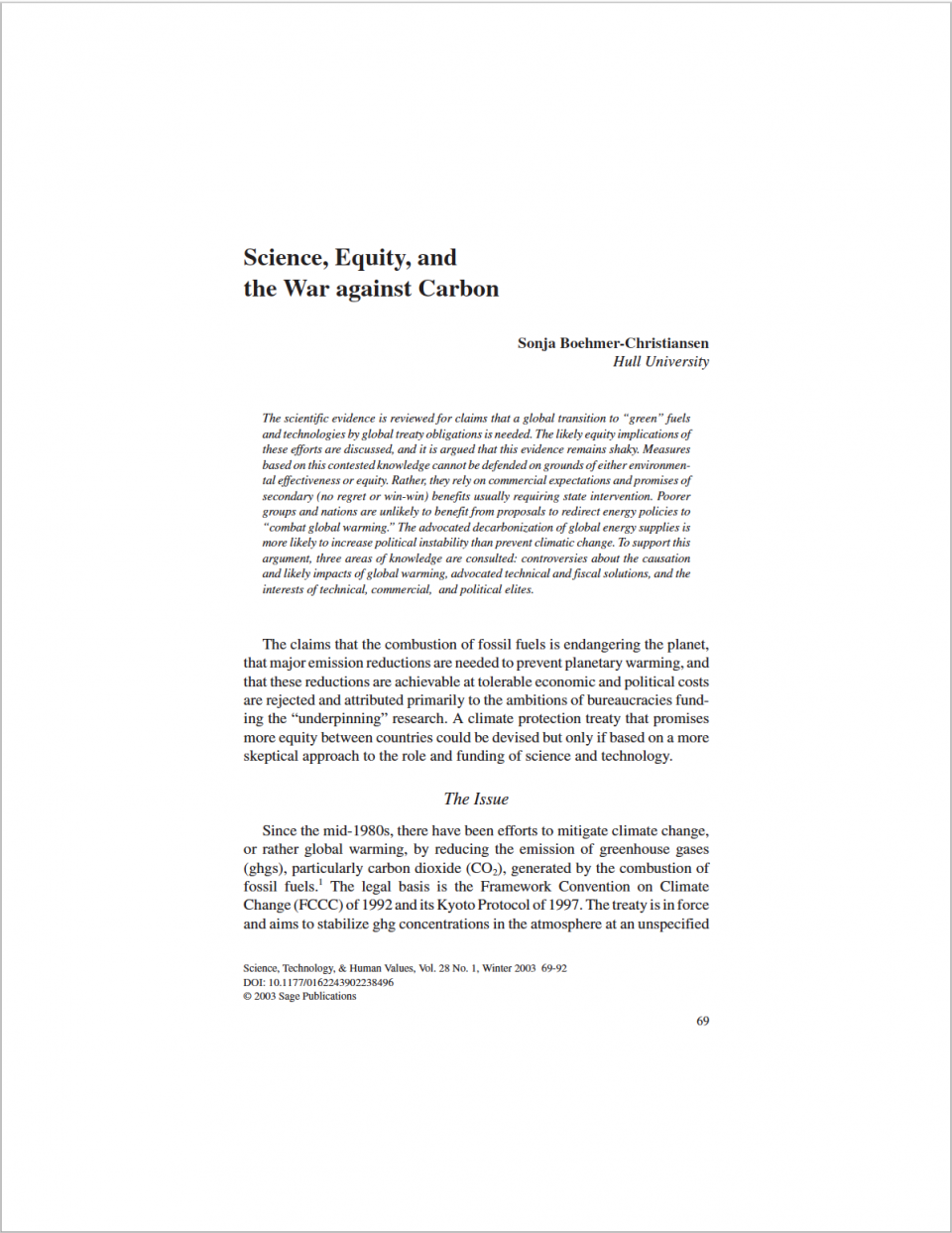ARTICLE ABSTRACT: The scientific evidence is reviewed for claims that a global transition to "green" fuels and technologies by global treaty obligations is needed. The likely equity implications of these efforts are discussed, and it is argued that this evidence remains shaky. Measures based on this contested knowledge cannot be defended on grounds of either environmental effectiveness or equity. Rather, they rely on commercial expectations and promises of secondary (no regret or win-win) benefits usually requiring state intervention. Poorer groups and nations are unlikely to benefit from proposals to redirect energy policies to "combat global warming." The advocated decarbonization of global energy supplies is more likely to increase political instability than prevent climatic change. To support this argument, three areas of knowledge are consulted: controversies about the causation and likely impacts of global warming, advocated technical and fiscal solutions, and the interests of technical, commercial, and political elites.

Sonja Boehmer-Christiansen, "2003. Boehmer-Christiansen. "Science, Equity, and the War against Carbon"", contributed by James Adams, STS Infrastructures, Platform for Experimental Collaborative Ethnography, last modified 7 June 2018, accessed 5 April 2025. https://stsinfrastructures.org/content/2003-boehmer-christiansen-science-equity-and-war-against-carbon
Critical Commentary
In this 2003 article, Sonja Boehmer-Christiansen questions the political efficacy of the strategy of garnering popular support for a transition to clean energy through the mobilization of evidence of climate destruction alone.